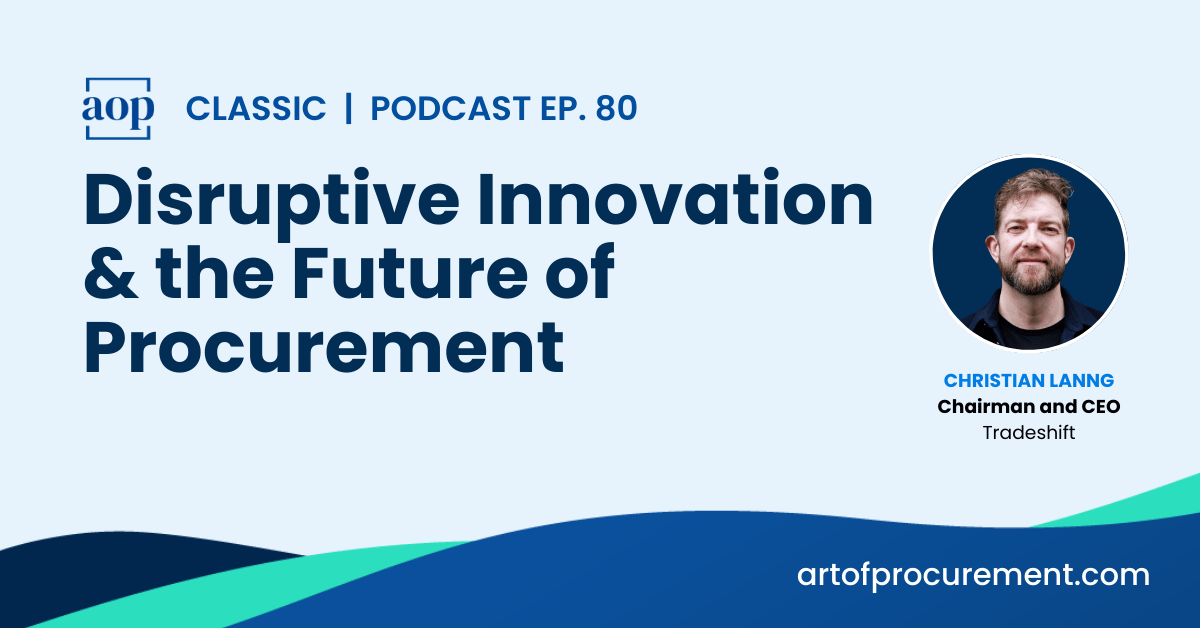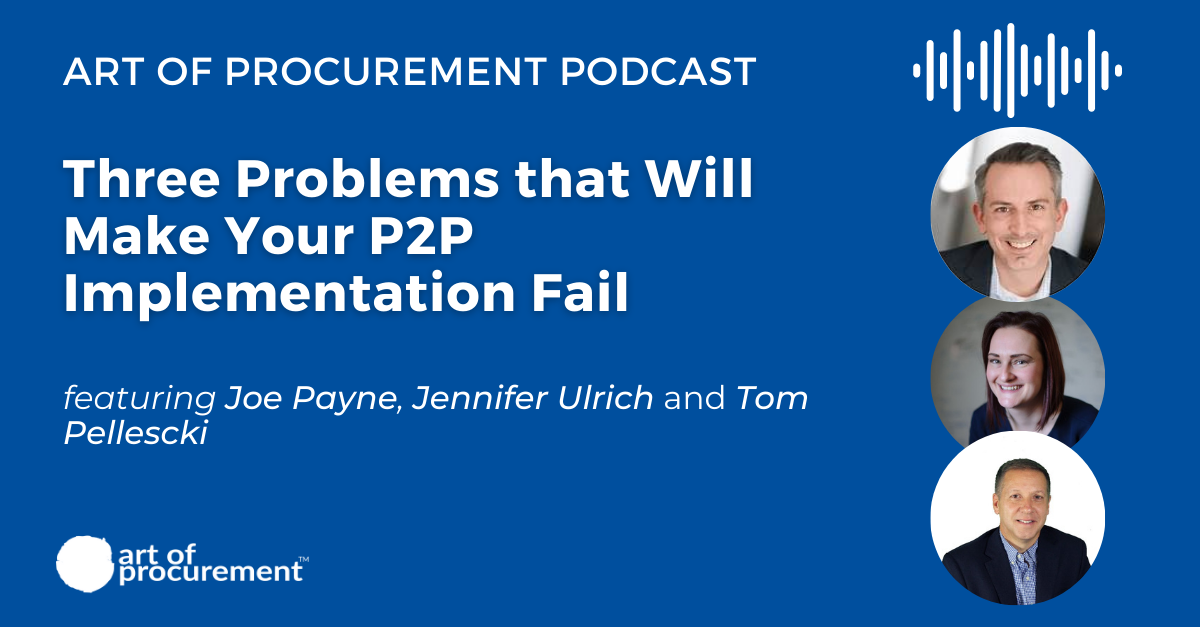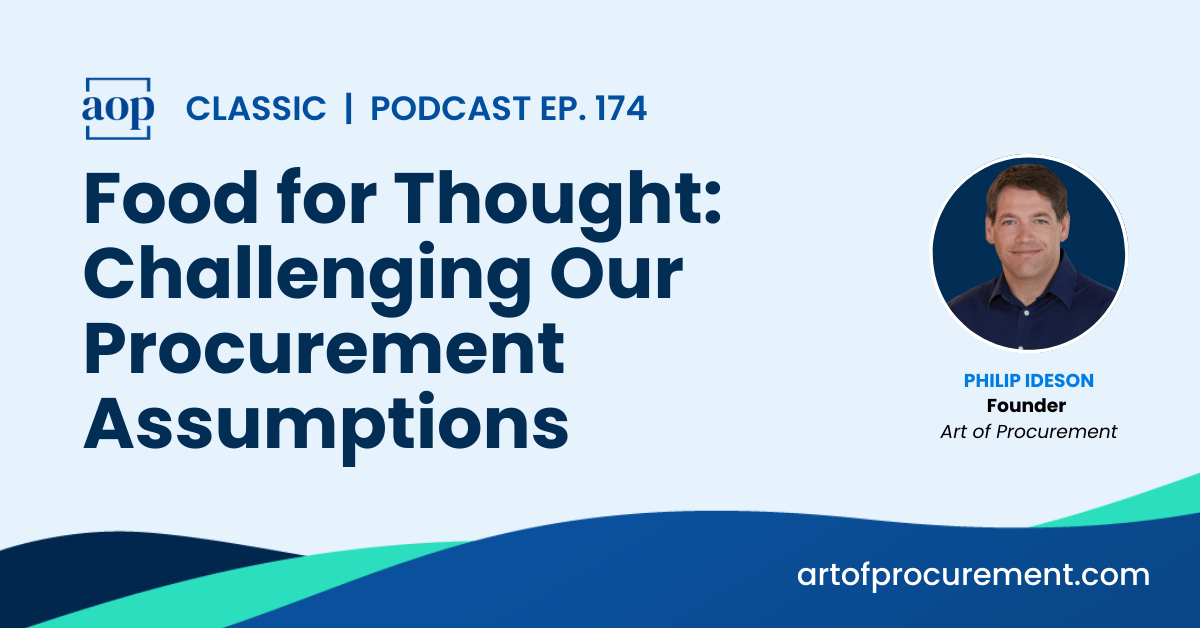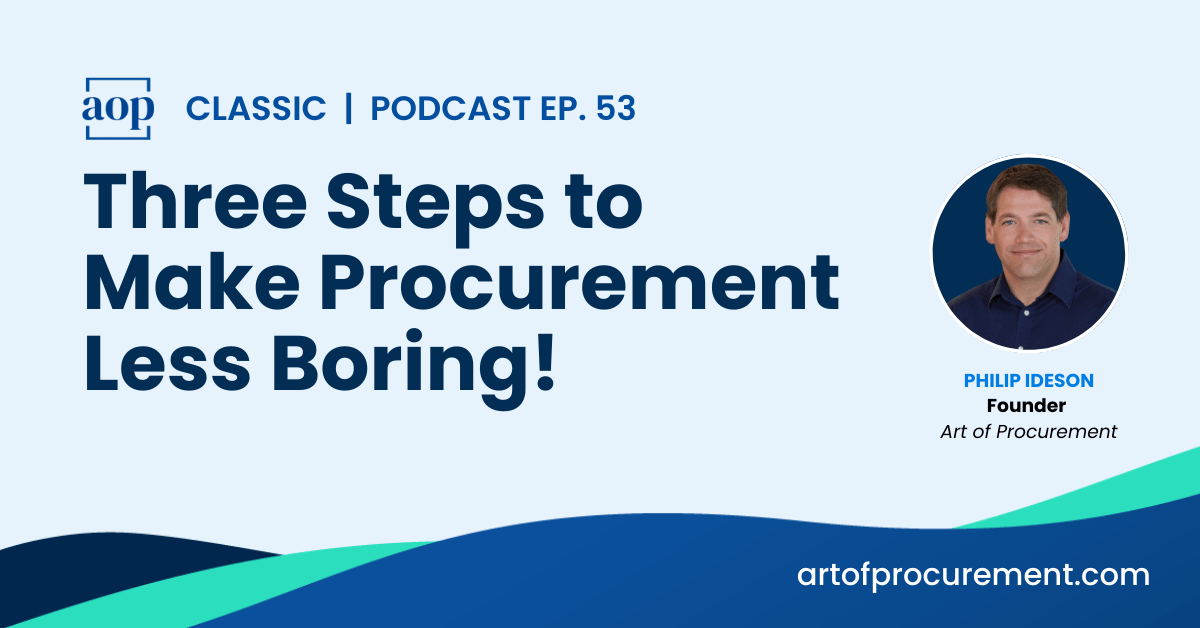1 min read
Disruptive Innovation & the Future of Procurement
Philip Ideson : Updated on December 10, 2024

As the Co-Founder, Chairman and CEO of Tradeshift, Christian Lanng is on the front lines of the technology evolution, and he gets to see first-hand the impact that innovative technology is having – and will have – on the enterprise.
In today’s Art of Procurement podcast, I sit down with Christian to understand what this will mean for procurement. If Christian’s vision materializes, it will mean a seismic shift is in store for our profession over the next 10 years.
iTunes | Subscribe | Rate & Review
“I don’t think that most large companies will have a back office in 10 years. I think that the idea you have a procurement department, you have all of these cost centers that are not contributing to the top line is just going to be gone. We are digitizing and automating our way out of most activities. Procurement has to become a strategic revenue driver, and if procurement resists, other people in the business will do it for them”
In this episode, you will learn:
- Why the measure of procurement’s success will become the cost to change suppliers, not the cost savings achieved from your existing suppliers.
- Why we will stop buying products and services, and start buying outcomes.
- How we will need to think more like a data scientist, analyzing new and expanding sources of information to determine the projects and transactions that matter, and that require human interaction.
- How organizations will transition from current delivery models to accessing procurement talent on-demand, using talent marketplaces.
- Why Christian believes that procurement leaders can turn their retained staff into a profit center by selling that expertize to non-competitors.
- The benefits of a platform & applications approach when building your procurement technology infrastructure.
- Why we are already in the “summer” of bots, and why AI will be the technology that has the biggest impact on procurement.
- Why the procurement professional of the future will need to be “problem solvers” and “opportunists”.
Links and Resources:
- Subscribe to the Art of Procurement podcast.
- Christian Lanng on LinkedIn and Twitter.
- Tradeshift Home Page
- Tradeshift’s Disruptive Potential, by Bill McBeath of ChainLink Research




